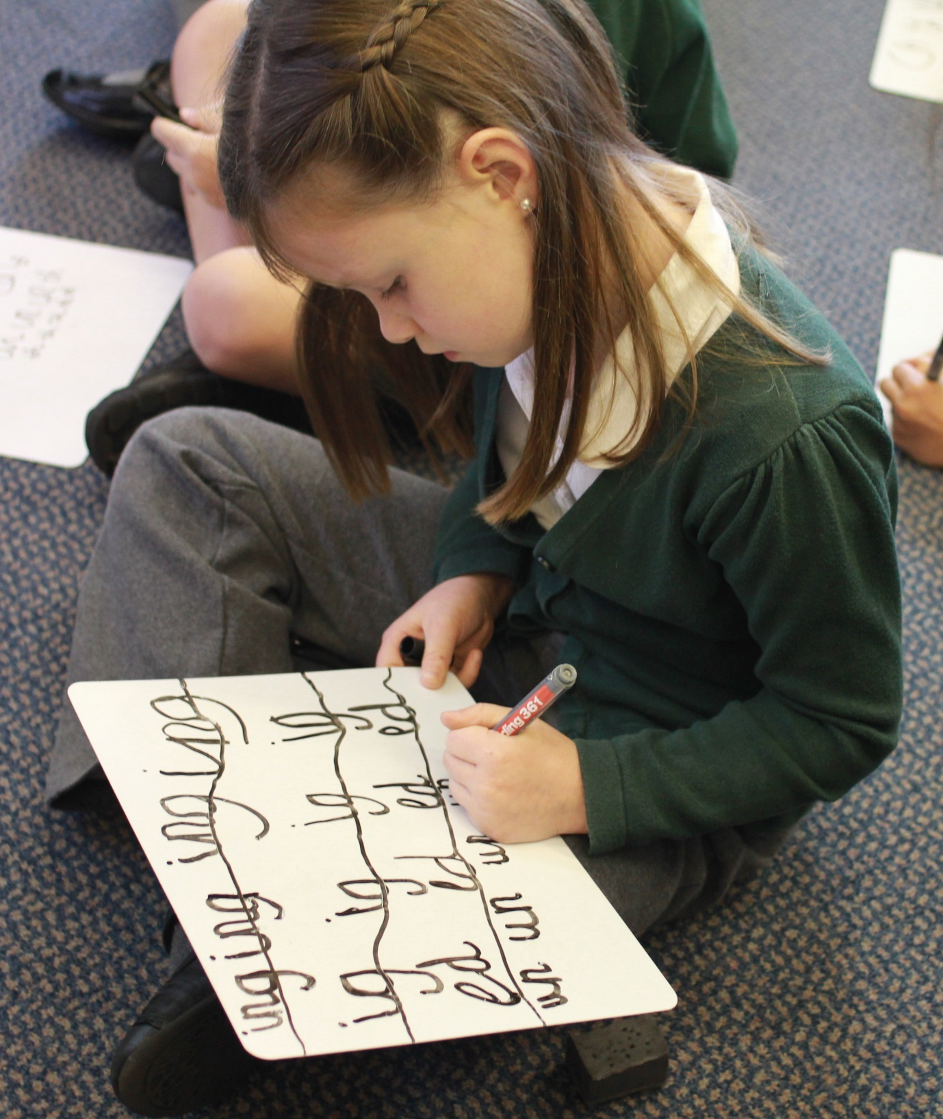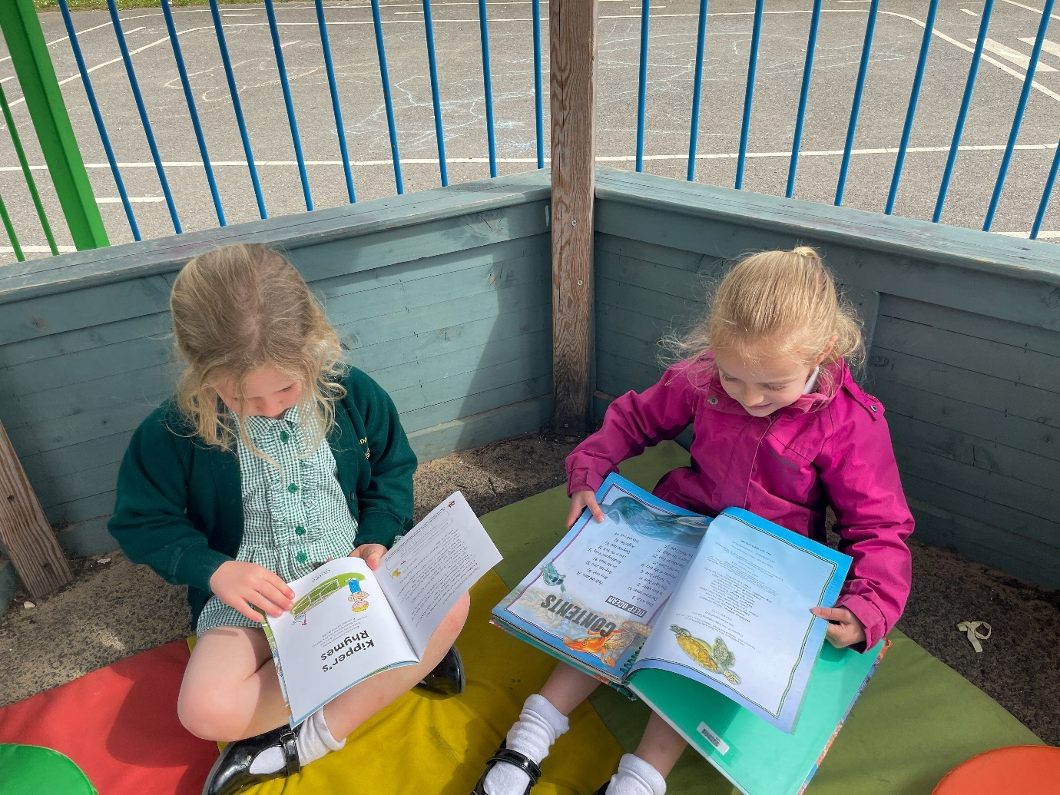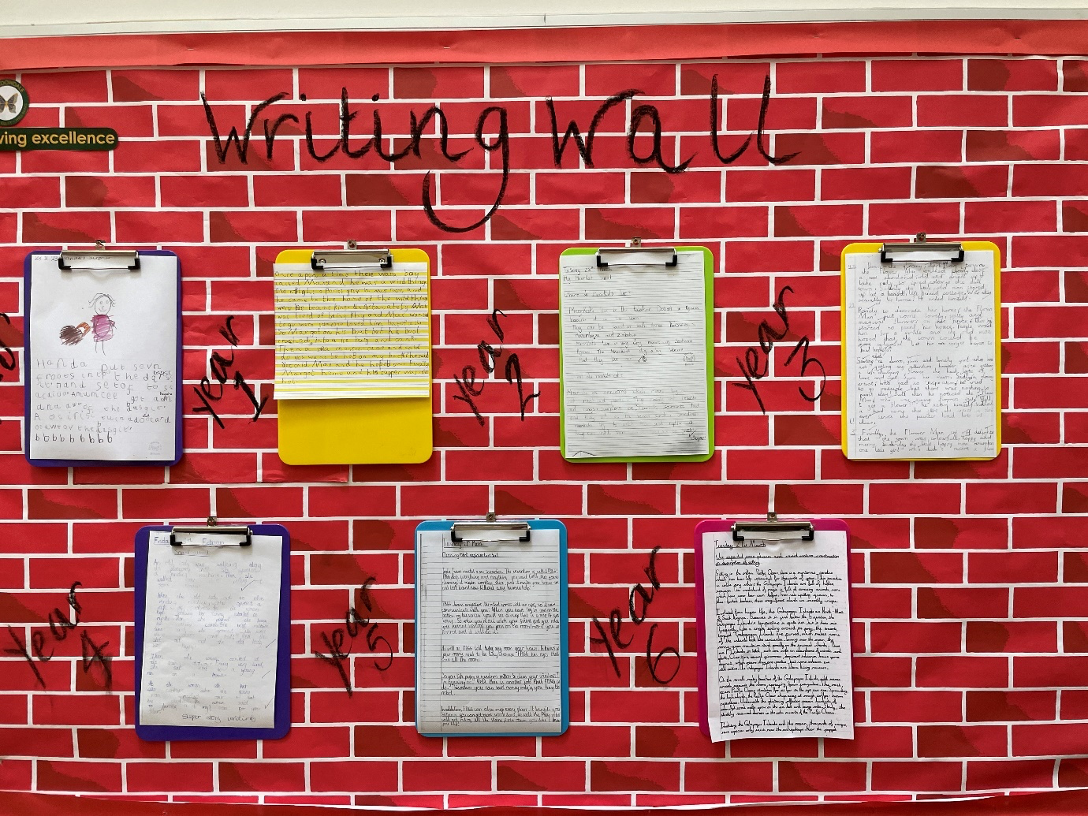English
Phonics

Our pupils acquire the necessary skills, knowledge and attitudes required for them to become fluent and confident readers. This enables them to read across a range of genres with a depth of understanding and to access learning across the whole curriculum.
Our engaging and challenging curriculum has been designed to ensure that children make excellent progress in all aspects of reading and is based upon the following principles:
- A structured approach to the teaching of phonics in EYFS and Key Stage 1 is embedded using the Sounds Write programme.
- Early reading books are phonically decodable at the appropriate level for each child Independent reading books are organised so that teachers can closely match pupil’s books to their level of attainment
- All teaching of reading supports the development of children’s skills in word reading and comprehension with fluency acting as the critical bridge between the two
- Our carefully considered approach to reading closely relates to the EEF Literacy Guidance reports ‘Reading bugs’ provide a framework for the teaching and learning of comprehension skills
- A structured approach to reading interventions across the school for lower-attaining pupils uses echo reading to support the development of fluency
- Reading for pleasure pedagogies such as daily reading aloud and book discussions about high-quality texts are embedded across the school.
Sounds-Write - http://www.sounds-write.co.uk/sites/soundswrite/uploads/files/47-sounds_write_leaflet_for_yr_parents.pdf
Reading

Phonics is prioritised in EYFS and KS1 to enable pupils to become confident and competent readers and writers. Through daily lessons in synthetic, systematic phonics, pupils will learn to use segmenting and blending skills efficiently and automatically for fluent reading. Pupils will also become confident at spelling by knowing how to represent all the sounds they can hear in words with the correct letters.
Our phonics teaching provides a solid foundation for pupils to continue to develop a love of reading and accuracy in spelling in KS2.
We follow the Sounds-Write phonics programme to ensure high-quality systematic, synthetic phonics provision in FS, KS1 and Year 3. Sounds-Write was chosen because of its proven, evidence-based impact on reading and spelling.
The programme provides pupils with a clear and thorough understanding of how the sounds of our speech are represented by symbols (or ‘spellings’) and provides daily opportunities for pupils to practise and develop their blending, segmenting and phoneme manipulation skills.
Fidelity to the structure and principles of the Sounds-Write programme ensures a thorough and consistent phonics curriculum with clear progression from year group to year group.
To further raise standards in reading, we use the Sounds-Write reading books along with the Dandelion phonically decodable books. These are designed to link with our Sounds-Write phonics curriculum to reinforce and secure pupils’ learning.
Also see:
Writing

At Meadowdale, we provide a rich, engaging English curriculum. We strive to develop competent writers who write clearly, accurately and coherently in and for a range of contexts, purposes and audiences. Our children understand the importance of using the written word as a tool for communicating thoughts, opinions and understanding. We create confident writers who write with increasing stamina.
Links are made across the curriculum to ensure that English learning is relevant and meaningful.
- Explicit links are made between oracy, reading and writing.
- Grammar is embedded into the early parts of the teaching sequence in order for children to be able to choose grammatical structures to fit the style and purpose of writing.
- We follow a structured approach to the teaching of handwriting through the Nelson Handwriting scheme. This progresses from the formation of single letters to developing a joined handwriting style.
- In Key Stage 1, the Sounds-write programme supports children in their development towards accurate age-appropriate spelling.
- In Key Stage 2, Word Study is used as an investigative approach to the development of spelling skills.
- Talk for Writing is used as a technique to support early writing in FS and Key Stage 1.
- A broad and diverse range of high quality texts are used to stimulate ideas for writing across all year groups.
- Children are taught how to edit and refine their written work.
